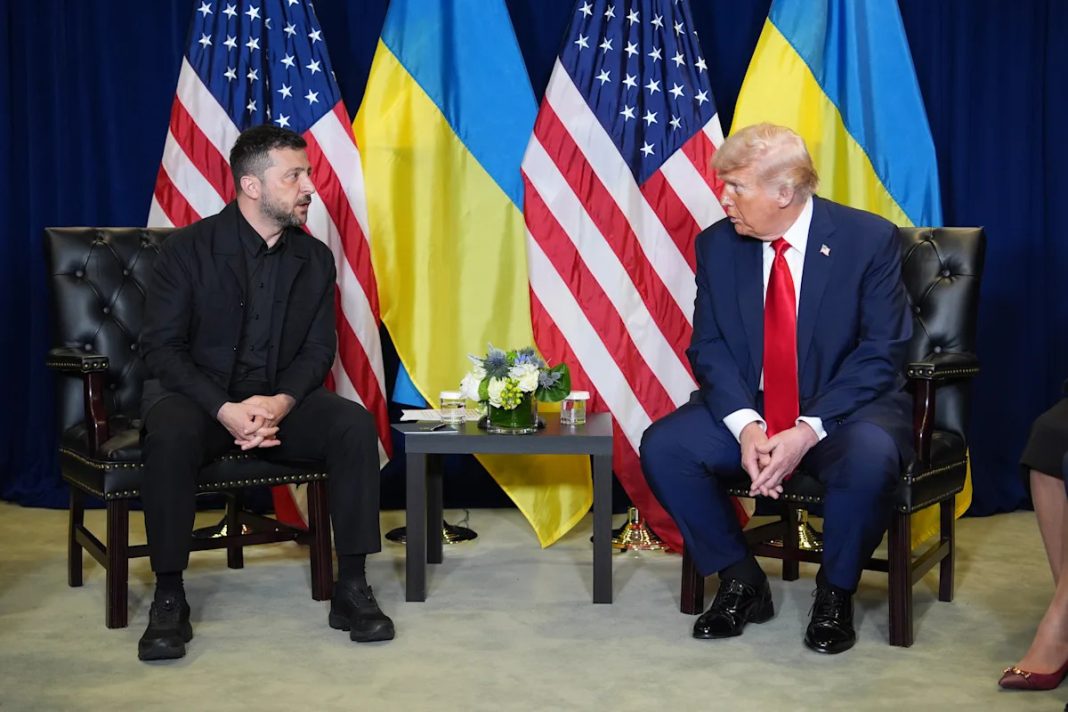President Donald Trump’s reversal on Russia this week stems from growing impatience with Vladimir Putin and “the reality on the ground,” Vice President JD Vance said Wednesday – even as skeptical allies see the president’s latest position as another in a long line of back-and-forth pronouncements on the war.
Trump’s comments at the U.N. General Assembly and on social media — in which the president said Ukraine can and should win back the land it lost to Russia — came after growing frustration with Russian intrusions in the airspace over NATO nations and as Putin shows no interest in negotiating a peace deal.
“We have engaged in incredibly good faith negotiations with both the Russians and the Ukrainians and I believe the president is growing incredibly impatient with the Russians,” Vance said during an event in North Carolina. “If the Russians refuse to negotiate in good faith, I think it’s going to be very, very bad for their country. That’s what the president made clear. It’s not a shift in position, it’s an acknowledgment of the reality on the ground.”
Vance’s comments come a day after Trump met with Ukrainian President Volodymyr Zelenskyy in New York. Shortly after the meeting, Trump publicly reversed his position that Russia should keep the land it has won.
The president also said the U.S. will continue to supply weapons to NATO “for NATO to do what they want with them.”
A White House official pointed to Trump emphasizing that it’ll take European support for Ukraine to prevail as a clear signal that he remains hesitant about any new U.S. commitments to the country’s defense. The shifting assessment, as Vance’s comments hinted at, “is about sending Putin a message that will eventually help get him to the table.”
The comments sent hopeful ripples throughout the parts of Washington and allied capitals that support Ukraine. But it also stirred a feeling of deja vu, as NATO nations have seen rhetorical flourishes from Trump before, with the administration’s actions not always following suit.
“It’s great to put that pressure on the Russians — for now — until the administration decides something else” a Brussels-based diplomat said.
A third official, also Brussels-based, worried that Trump’s comments could simply be the president “amplifying the viewpoint of the last person he spoke to,” that does not amount to a significant shift in policy.
Another official from a NATO nation backed up that wariness. “We are moving forward with the plans we’ve made for Ukraine before this. We’ll see what happens.” The official added that the new effort for European nations to buy American weapons for shipment to Ukraine is now in place and “we feel good about that.”
The war in Ukraine entered another phase over the summer, with Ukrainian long-range drone strikes hitting Russian oil refineries sometimes hundreds of miles inside the country’s borders, putting Moscow’s major export – oil and gas – at some risk. The strikes bring the war home to ordinary Russians in the form of gas shortages, and danger to oil industry workers.
At the same time, Russia has been launching hundreds of drones and missiles at Ukrainian cities and purely civilian targets, killing people where there is no economic or military benefit to the strike.
Over the past week, Russia also sent 19 drones into Poland, another into Romanian airspace, and Russian fighter planes have violated Estonian airspace. The incursions have led NATO to beef up air patrols along its eastern flank and suggest to some that Putin might be willing to expand the war, or at least is probing NATO air defenses for some future action.
A fourth European official acknowledged the broader unreliability of Trump’s shape-shifting on the war but was encouraged that his comments on Tuesday reflect that “he is starting to wake up to the reality with Putin. That’s taken him a while, but it shows the messages from [other NATO leaders] are getting through.”
It’s been less than seven months since Trump memorably told Zelenskyy in the Oval Office that Ukraine “didn’t have the cards.” In his remarks to the United Nations General Assembly on Wednesday, Zelenskyy looked to harness whatever momentum Trump’s about-face might create, urging democratic allies to unite in an effort to pressure Russia to finally negotiate an end to the war.
“If it takes weapons to do it, if it takes pressure on Russia, then it must be done, and it must be done now. Otherwise, Putin will keep driving the war forward wider and deeper. And we told you before, Ukraine is only the first,” he said.

